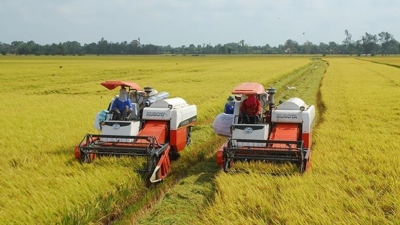Real estate falling short of potential
Though holding a great deal of potential for development, Vietnam’s real estate market must still cope with a host of obstacles.

Despite being an industry with a high spillover effect on the overall economy, Vietnam’s real estate market continues to face problems from the pandemic and legal issues, resulting in it being unable to develop to its full potential and fulfil its role as a main economic driver.
Real estate contributed about 14 per cent of GDP in the 2019-2021 period and had an impact on 40 other key sectors of the economy, became a bridge for other markets, and contributed to the development of all types of markets, according to a report from the Vietnam National Real Estate Association (VNREA). The report also pointed out that if the production value of the real estate industry falls 10 per cent, GDP will fall 1.247 per cent, with processing and manufacturing the most affected, losing 0.861 per cent, followed by agriculture, forestry and fisheries and then tourism.
As an economic driver, if the real estate market faces crises it is likely that the entire economy will also be affected.
Besides the impact of Covid-19, legal problems have caused delays at many real estate projects. Businesses have been affected not only by frozen capital but also rising costs.
There are many overlaps and conflicts in legal documents governing real estate, resulting in a lag in completing procedures due to hesitancy in the approval process. When demand is high, supply becomes small because of “frozen” projects, which pushes up prices. There are also problems in the issuance of bonds by real estate businesses and the management of the real estate trading floor.
Recognizing the market’s shortcomings, the Ministry of Construction has set up a program and plan to cut conflicts in legal documents. It has also requested that other ministries, agencies, and localities participate in the process.







